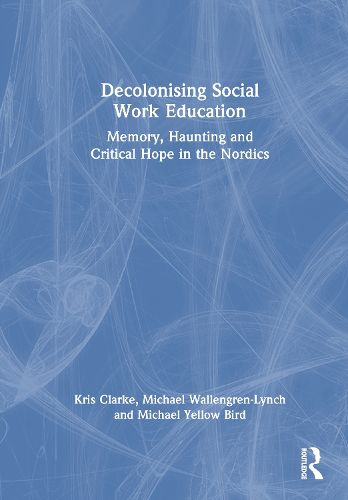Readings Newsletter
Become a Readings Member to make your shopping experience even easier.
Sign in or sign up for free!
You’re not far away from qualifying for FREE standard shipping within Australia
You’ve qualified for FREE standard shipping within Australia
The cart is loading…






In a world gripped by intersecting crises and deepening inequalities, can social work break free from its colonial entanglements to imagine a more just and compassionate future?
Decolonising Social Work Education: Memory, Haunting and Critical Hope in the Nordics confronts the enduring legacies of colonialism that continue to shape the foundations of social work education. Through the lenses of haunting, memory, and critical hope, it challenges the discipline's historical complicity with systems of domination and calls for a radical reimagining of its pedagogical core. Grounded in pluriversal knowledges and informed by decolonial thought, this book advocates for a transformative, relational curriculum-one that resists neoliberalism, carceral logics, and epistemic injustice.
Drawing on examples from the Nordic context, it offers a bold vision for social work rooted in justice, equity, and ecological interconnectedness. With humility, reflection, and collective imagination, it charts a path towards a liberatory future where social work becomes a force for healing and transformation.
$9.00 standard shipping within Australia
FREE standard shipping within Australia for orders over $100.00
Express & International shipping calculated at checkout
Stock availability can be subject to change without notice. We recommend calling the shop or contacting our online team to check availability of low stock items. Please see our Shopping Online page for more details.
In a world gripped by intersecting crises and deepening inequalities, can social work break free from its colonial entanglements to imagine a more just and compassionate future?
Decolonising Social Work Education: Memory, Haunting and Critical Hope in the Nordics confronts the enduring legacies of colonialism that continue to shape the foundations of social work education. Through the lenses of haunting, memory, and critical hope, it challenges the discipline's historical complicity with systems of domination and calls for a radical reimagining of its pedagogical core. Grounded in pluriversal knowledges and informed by decolonial thought, this book advocates for a transformative, relational curriculum-one that resists neoliberalism, carceral logics, and epistemic injustice.
Drawing on examples from the Nordic context, it offers a bold vision for social work rooted in justice, equity, and ecological interconnectedness. With humility, reflection, and collective imagination, it charts a path towards a liberatory future where social work becomes a force for healing and transformation.